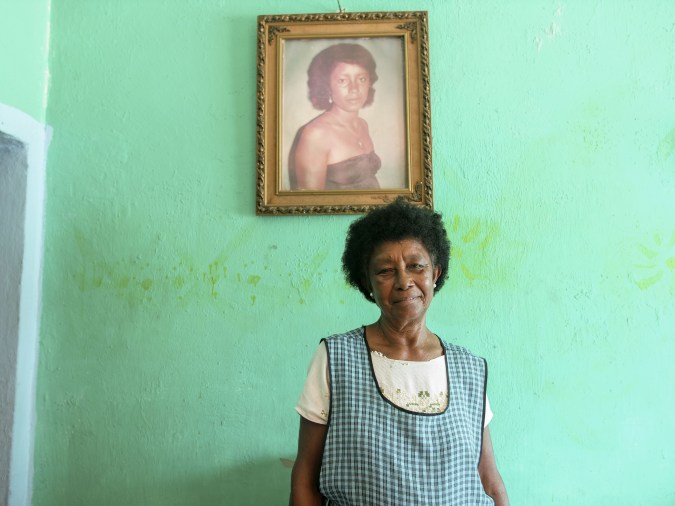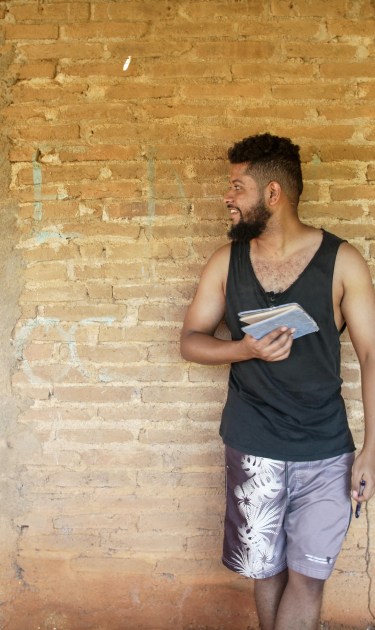“We are talking about 450 years of invisibilization.” With these words, Gina Diédhiou echoes the sentiments of many Afro-Mexicans in the Latin American country. And after centuries of erasure (and because of the work of this community), Mexico is taking its first step in recognizing its Black population. Earlier this week, the Senate unanimously voted to approve recognition of Afro-Mexicans in the national constitution. Although full approval is still pending – the lower house of Mexican Congress still needs to vote on it – the Senate’s action has made history.
“The national recognition is not going to change the way that Black people are seen in Mexico overnight.”
“Four centuries later, we are finally recognizing that we are here, we were born here and we’ve always been here,” says Gina, who attended the Senate meeting where the movement passed. “We were in tears because there was something special about seeing 122 people vote yes, not one person said no.”
Recognition in the constitution would give Afro-Mexicans access to the rights that have long been denied to them, such as access to government resources for programs and projects, or seats in government councils. Politically, the approval could lead to many changes for this population, though it’s not clear if this will have social and cultural changes, too. Some aren’t so sure.
“The recognition is important, but people on the street are still gonna ask me, ‘Where are you from?’” says Isaías Martínez Trani, alluding to the fact that many people in Mexico see him as a foreigner. “The national recognition is not going to change the way that Black people are seen in Mexico overnight.”

For his brother, Zury Martínez Trani, this approval by the Senate represents “part of a payment of a historical debt that the country has with us.”
Isaías and Zury are musicians from a small town in la Costa Chica de Oaxaca, but now reside in Mexico City. Isaías tells me that growing up in his hometown, he was aware of his Afro heritage, but did not fully gain consciousness of his Blackness until migrating to the city six years ago. “Leaving my hometown and feeling the racism in the city allowed me to reclaim my roots, feel pride, and see that we have a beautiful culture,” he adds.
His story is a common one I’ve heard among Afro-Mexicans, though it differs from my experience as a Blaxican growing up in California. Though I, too, have undergone erasure from others in terms of my Mexicanness, the context of racial categorizing in the United States made it so that I was always overtly aware of my identity. In Mexico, the national discourse has neglected the Black presence and contributions to such a level that many Afro-Mexicans are negated this right to self-identification until later points of their lives.


“From elementary school, we are told that Mexico is a mestizo country, that we come from two ethnicities, but the Afro community is never mentioned,” Zury says. “So there are people who can’t recognize themselves as Afro because they don’t even know where they come from.”
Afro-Mexican artist Marbella Figueroa has had a slightly different experience: “I did always know that I was Black, but I didn’t accept it. The phrase ‘mejorar la raza’ is very much inserted into the Mexican [mindset.]”
Figueroa was born and raised in Mexico City, but her family is from la Costa Chica. So she grew up seeing “two faces of Blackness” in Mexico, living a duality between the city and the coast.
“In the city, everyone was different from me. I was always the weird one, the dark one, the ugly one,” she says. “But when I when I traveled to La Costa, I felt like the prettiest girl in the world, because I felt like I was in my habitat.”
Figueroa understands the impact that the constitutional recognition could have on her family in la Costa, as they will be able to access resources that have always been afforded to her in the city. On the other hand, she fears the recognition could be seen as an end-all, be-all in the struggle for Afro-Mexican visibility.
“It is going to give an opportunity to build a network that unites the different Black communities that inhabit this country.”
“We shouldn’t just applaud the fact that we’re included in the constitution, but also applaud the work that we’re doing for this movement from the trenches,” she says.
For a number of years, Gina Diédhiou and her sister, Seynabou, have worked to increase visibility to Afro-Mexicans from their respective fields – Gina as a public official at a federal anti-discrimination institution, and Seynabou as a chef, who fuses together African and Mexican flavors. They both agree that the work doesn’t end after they have gained recognition in the constitution.
“It’s a recognition that’s written on paper, but now comes the part of bringing that into practice,” Seynabou says.
Gina hopes that the change in the constitution will open doors for recognition in other institutions. For example, textbooks in schools could now explicitly acknowledge the contributions of Afro-Mexican populations in history. “Black children and teenagers in this country need to know their history, to know that they too helped build this nation-state,” Gina says.
The sisters were born and raised in Mexico City, with their father hailing from Senegal and their mother from Puebla. Seynabou doesn’t personally identify as “Afro-Mexican” because her family doesn’t share the same history as the Afro communities that have older roots in Mexico, but as someone who is Black and Mexican, she is invested in what this change could mean.
“In all of these years, the resources given out have been like one piece of cake that is so miserable and scarce that people fight over it, creating fragmentation between us,” she says. “One of the most beautiful things about this recognition is that it is going to give an opportunity to build a network that unites the different Black communities that inhabit this country.”




